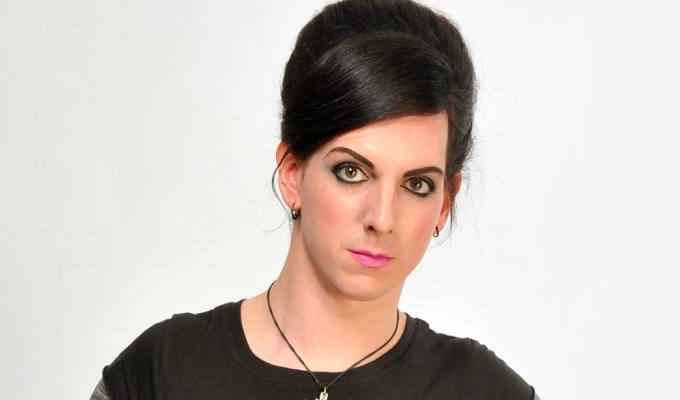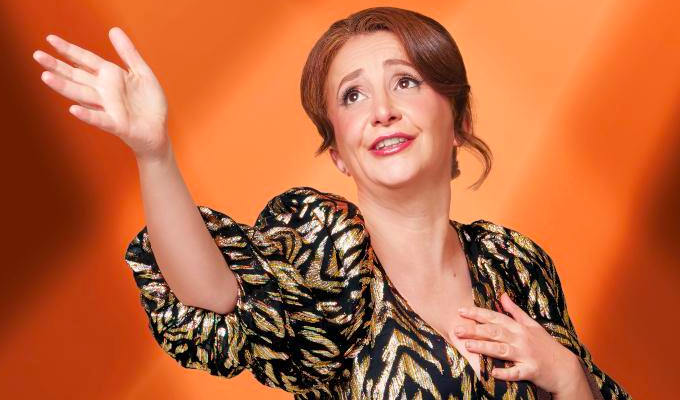The rules of comedy
Yianni Agisilaou on what he's learned
‘What do you mean “hard vowels?”’ asked my friend Lincoln. ‘Hard vowels, you know, sharp vowels like k, x and t,’ I replied, emphasizing the sounds the letters made.
‘But how does that make a joke funnier?’
Having just told my friend that the essence of comedy was finding different ways to surprise an audience I was explaining the theory that if you have a choice between two punchlines, all things being equal, the one which ends in a hard vowel should make an audience laugh more. The reason for this is that due to the blunt nature of the sound, hard vowels seem to ‘hit’ audience members harder, increasing the impact of the joke.
‘How do you know these things?’ he inquired. ‘Tricks of the trade” I replied. ‘Mostly experience. A lot of trial and error.’
It has been more than ten years since my first stand- up gig and what continues to enthrall, amaze and enchant me about stand-up comedy is its constant ability to provide something new to learn; lessons unknown, about both comedy and myself.
On a basic level, the ‘comedy rule’ that most people know about, even if they don’t know it by name, is the rule of three. This is a very versatile joke structure where three items are listed, the third one always being the punchline.
For example in my show I have my father saying: ‘Yianni, there are only three acceptable jobs for Greek sons: doctor, lawyer and butcher.’
The first two build the expectation that the list consists of reputable jobs, the third one breaks that expectation getting the laugh.
I couldn’t have only had two items. If my Dad had only listed two jobs, “doctor and butcher” there wouldn’t have been enough items in the list to establish an expectation and so the punchline ‘butcher’ wouldn’t get a laugh. If we went the other way and made it ‘doctor, lawyer, accountant and butcher’ the joke is longer than it needs to be, the pattern is set up after ‘lawyer’ and since brevity is the soul of wit we should pare the list down to three.
However as I progressed in my comedy career I learnt other, and increasingly subtle rules of comedy. Repeating punchlines (don’t), the place of arrogance (it can be pulled off, but it is a teetering tightrope), how posture and voice can make or break a joke, how many more laughs you can get once you start physicalising with your body (lots), how much people love callbacks (a LOT), how difficult it is to recreate something that happened spontaneously (almost impossible, don’t bother), whether people will emotionally invest in imaginary characters you’ve invented (shockingly, yes) and whether people sometimes laugh at a lot less than they’d really like to because they’re worried about what the other people in the room will think of them (undoubtedly).
You might think this cornucopia of ‘rules’ might ossify stand up comedy into some predictable textbook subject that can be taught ‘to dummies’. However, quite beautifully, just as soon as you think you’ve got a rule nailed down, you see someone else absolutely shatter it and realise that trying to put absolute rules on a collective human response is definitely an art, not a science.
Live comedy is an enigmatic combination of everything in the room: the town you’re in, the ticket price, whether the food was good, the lighting, the seating, the time of day, the day of week, how much everyone’s been drinking, whether a local sporting team has won or lost recently, whether the gig is populated by couples, students, old people, young people, stag parties, hen parties, whether the audience have come to see that specific comedian, whether there is a complement of dickheads in the room, whether those dickheads are friends, whether the compere has done a good job warming up the show, the colour of the curtains, whether the waiter is wearing striped underwear and who would win in a fight between a zebra and pterodactyl?
Put simply stand-up comedy, like life, is controlled chaos in action. You can observe it, twist it, poke it, analyse it and understand it all you want but in a moment, it can swing away from you and leave you flabbergasted.
It is an eternal and beautifully mind-bending riddle. And for that, I love it.
- Yianni’s Fringe show They @#$% you up: Greek Parents is on at Just the Tonic at The Caves, is on at 10.15pm.
Published: 5 Aug 2010






